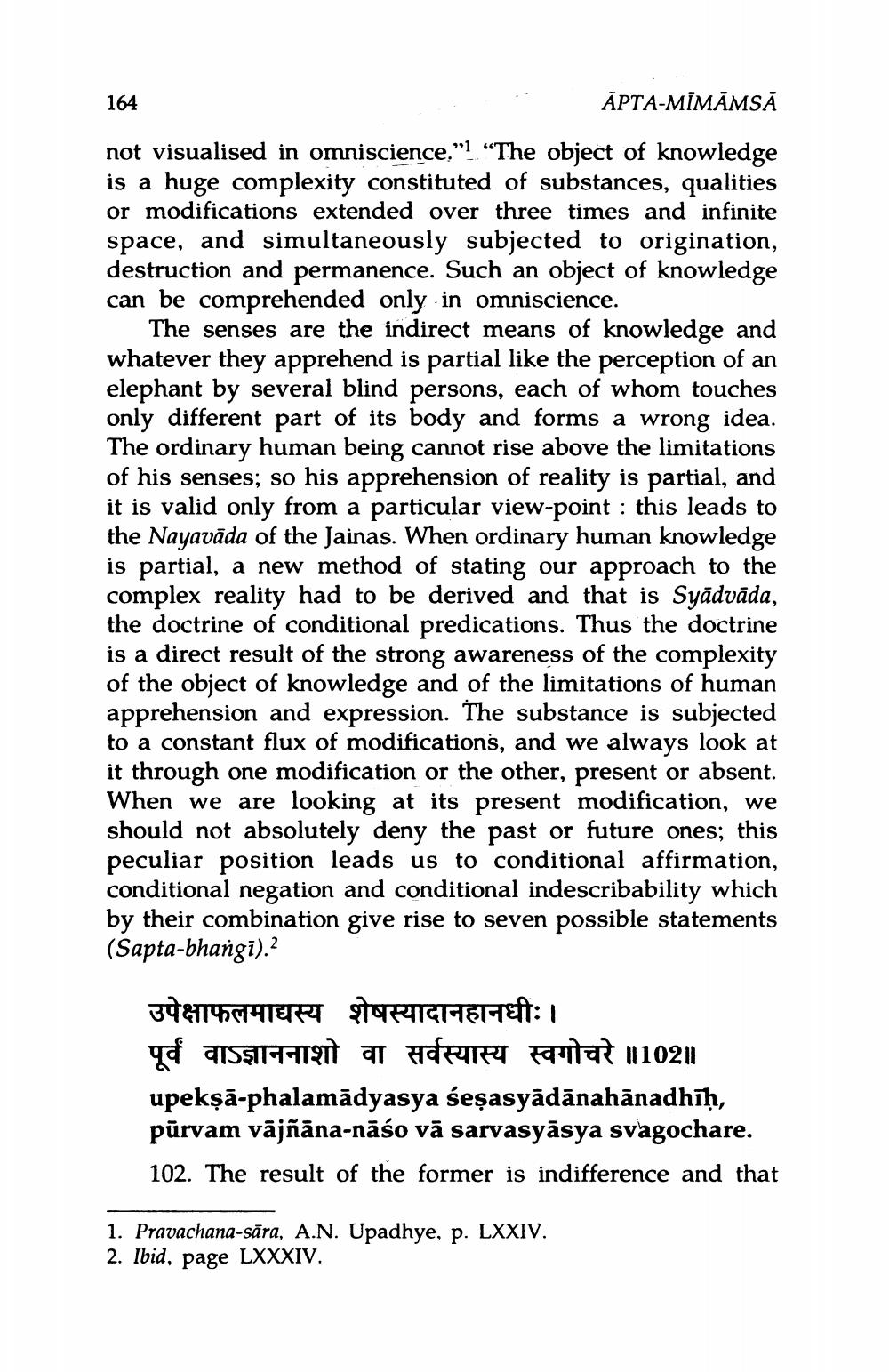________________
164
APTA-MĪMĀMSĀ
not visualised in omniscience.”] “The object of knowledge is a huge complexity constituted of substances, qualities or modifications extended over three times and infinite space, and simultaneously subjected to origination, destruction and permanence. Such an object of knowledge can be comprehended only in omniscience.
The senses are the indirect means of knowledge and whatever they apprehend is partial like the perception of an elephant by several blind persons, each of whom touches only different part of its body and forms a wrong idea. The ordinary human being cannot rise above the limitations of his senses; so his apprehension of reality is partial, and it is valid only from a particular view-point : this leads to the Nayavāda of the Jainas. When ordinary human knowledge is partial, a new method of stating our approach to the complex reality had to be derived and that is Syādvāda, the doctrine of conditional predications. Thus the doctrine is a direct result of the strong awareness of the complexity of the object of knowledge and of the limitations of human apprehension and expression. The substance is subjected to a constant flux of modifications, and we always look at it through one modification or the other, present or absent. When we are looking at its present modification, we should not absolutely deny the past or future ones; this peculiar position leads us to conditional affirmation, conditional negation and conditional indescribability which by their combination give rise to seven possible statements (Sapta-bhangi).
उपेक्षाफलमाद्यस्य शेषस्यादानहानधीः। पूर्वं वाऽज्ञाननाशो वा सर्वस्यास्य स्वगोचरे ॥102॥ upekṣā-phalamādyasya seşasyādānahānadhīḥ, pūrvam vājñāna-nāšo vā sarvasyāsya svagochare. 102. The result of the former is indifference and that
1. Pravachana-sāra, A.N. Upadhye, p. LXXIV. 2. Ibid, page LXXXIV.




